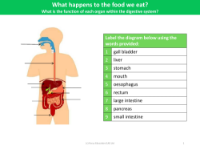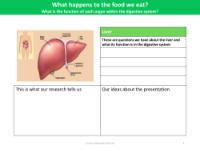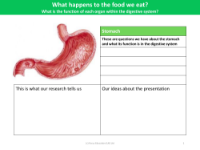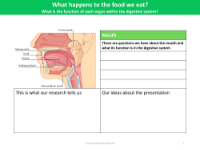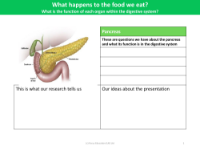What is the function of each organ within the digestive system? - Presentation
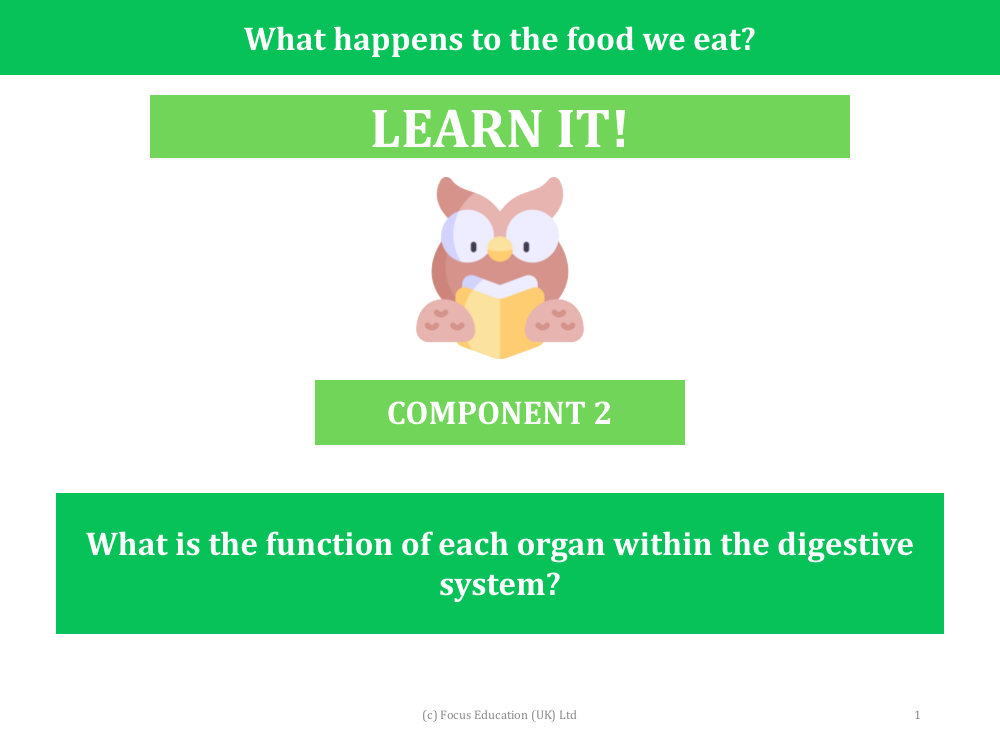
Science Resource Description
The digestive system is a complex network of organs that work together to break down food, absorb nutrients, and expel waste. Each organ has a specific function in this intricate process. The mouth starts the digestion by mechanically breaking down food with teeth and chemically with saliva. The oesophagus is a muscular tube that transports food from the mouth to the stomach. The stomach acts as a mixer and grinder, secreting acid and enzymes to further break down food into a semi-liquid form. The liver produces bile, which is stored in the gall bladder and later released into the small intestine to help digest fats. The pancreas produces digestive enzymes that are secreted into the small intestine to aid in the breakdown of carbohydrates, proteins, and fats.
The small intestine is the site where most of the digestion and absorption of nutrients occurs. Its lining is highly folded to increase the surface area for nutrient absorption. The large intestine, or colon, absorbs water and electrolytes from the remaining indigestible food matter and compacts it into feces. The rectum is the final section of the large intestine, holding the feces before they are expelled from the body. Understanding the function of each organ within the digestive system is essential for comprehending how our bodies utilise the food we eat for energy, growth, and repair.

